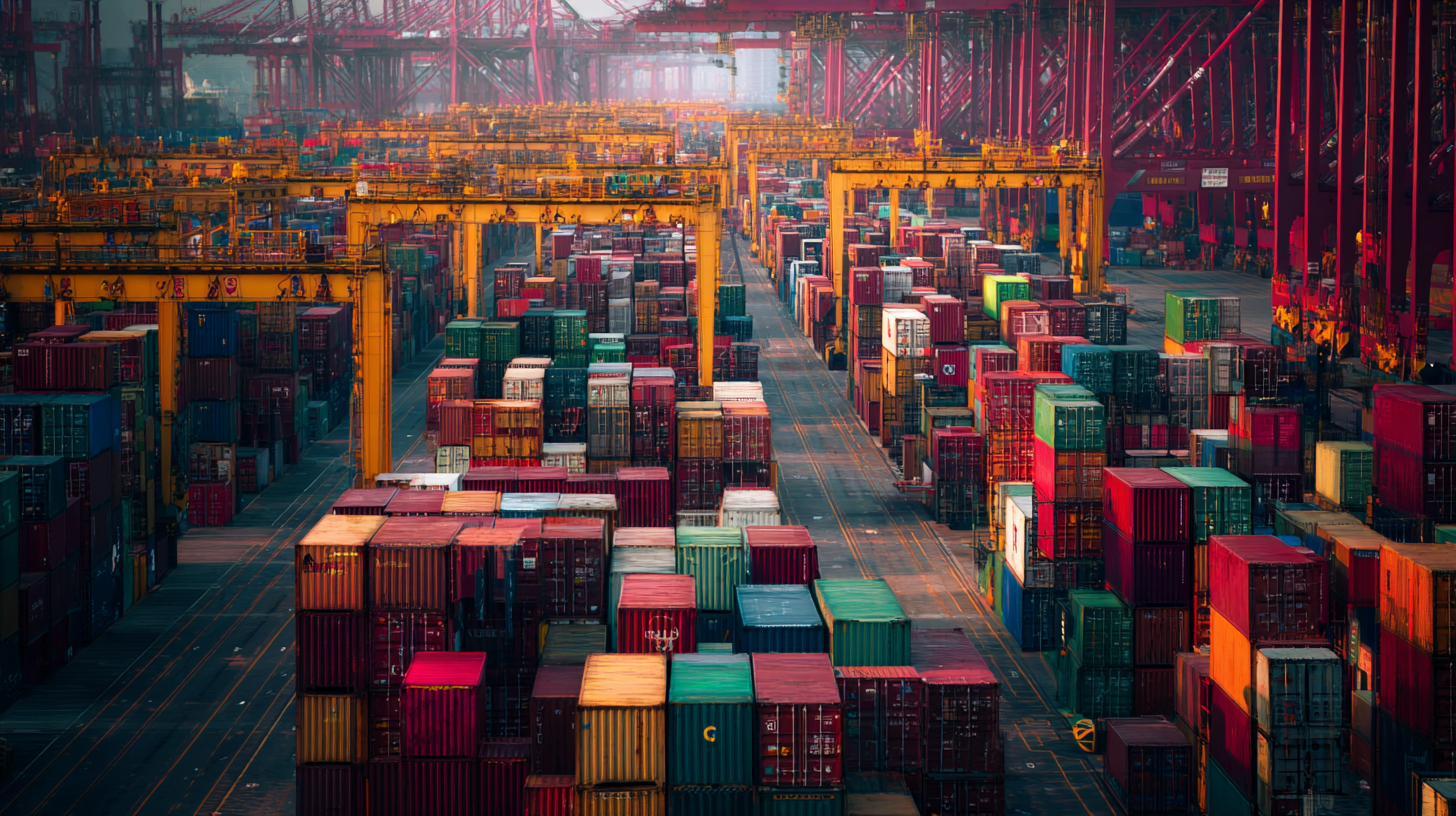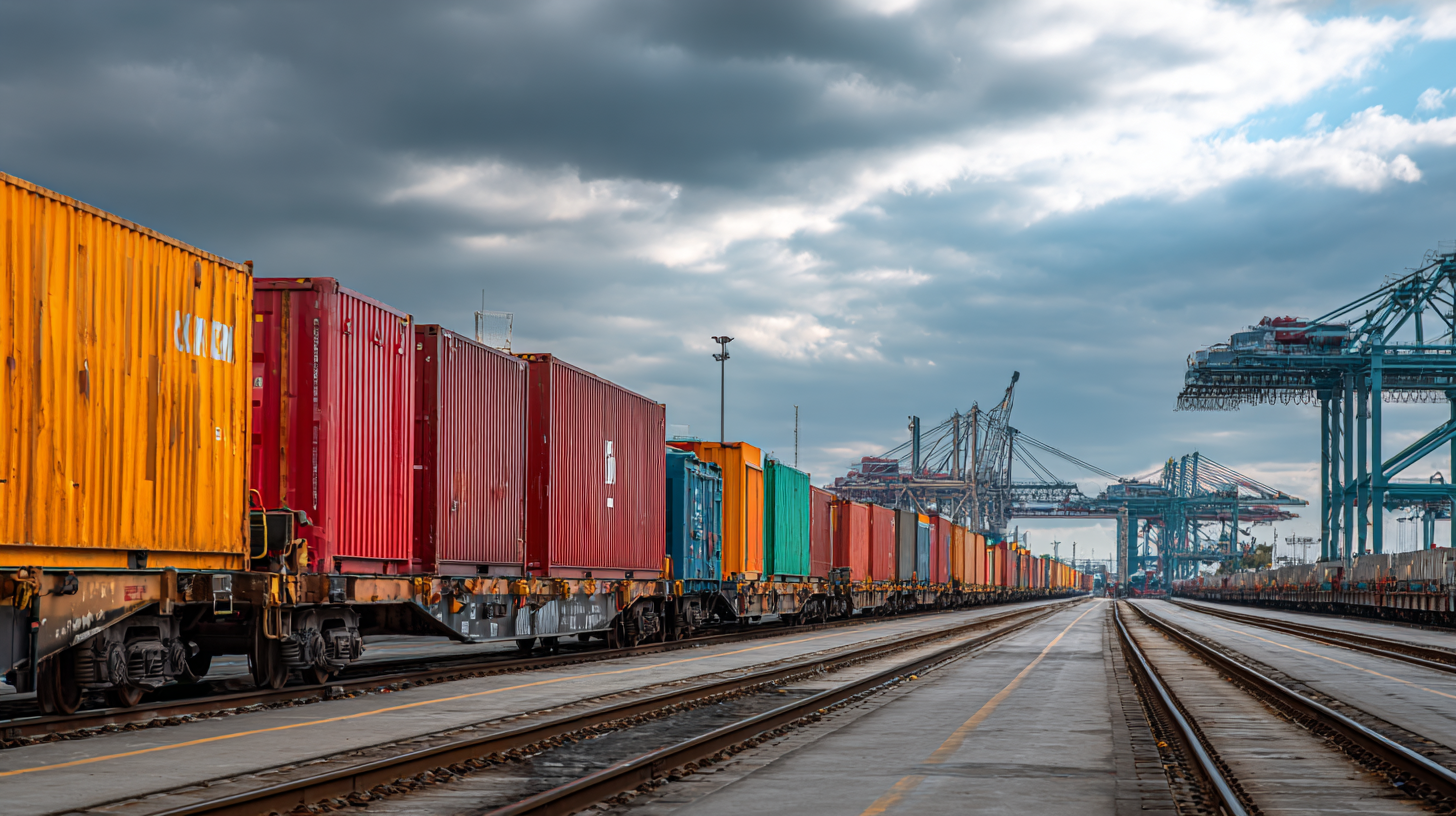In today's competitive art and design market, the demand for high-quality furnishings like the Rotating Collection Table is rapidly increasing. According to a recent report from Global Industry Analysts, the global furniture market is projected to reach a staggering $650 billion by 2025, with specialty furniture such as rotating collection tables capturing a significant share due to their unique functionality and aesthetic appeal.
 However, navigating the complexities of importing and exporting these specialty items requires a thorough understanding of certification processes. This blog aims to provide a comprehensive guide on how to obtain the necessary import and export certifications for the best rotating collection tables, ensuring compliance and optimizing market potential in a burgeoning industry.
However, navigating the complexities of importing and exporting these specialty items requires a thorough understanding of certification processes. This blog aims to provide a comprehensive guide on how to obtain the necessary import and export certifications for the best rotating collection tables, ensuring compliance and optimizing market potential in a burgeoning industry.
Import and export certifications play a crucial role in enhancing the marketability and global reputation of products, including the exquisite rotating collection tables. These certifications not only serve as proof of compliance with international standards but also instill confidence in potential buyers regarding the quality and safety of the products. In a competitive market, possessing the right certifications can set a manufacturer apart, facilitating smoother trade relationships and enabling access to more lucrative international markets.

Similar to how Tunisia is modernizing its olive oil industry to boost its international standing, manufacturers of rotating collection tables must prioritize obtaining necessary certifications. As markets evolve, focusing on sustainable practices and transparency in production processes will not only appeal to environmentally conscious consumers but will also enhance the brand's credibility. Initiatives that emphasize quality assurance and adherence to global standards pave the way for businesses to effectively navigate the complexities of international trade and expand their reach.
When it comes to exporting Chinese manufactured tables, having the right certifications is crucial for compliance and market acceptance. Key certifications include ISO 9001 for quality management systems, which 1.8 million organizations worldwide have adopted, highlighting the importance of quality assurance in trade. Additionally, for specific markets, such as the United States and Europe, obtaining certifications like the CE marking or ASTM standards can facilitate smoother entry into these competitive markets. These certifications not only enhance the credibility of your products but also assure buyers of their safety and reliability.
**Tip:** Before starting the certification process, ensure that you have a comprehensive understanding of your target market’s requirements. This involves researching specific regulations that may apply to your product category, as these can vary significantly from one region to another.
Another important consideration is environmental certifications such as the Forest Stewardship Council (FSC) label, which is increasingly demanded by consumers seeking sustainably sourced products. In 2020, the global demand for sustainable furniture grew by over 10%, indicating a shift towards environmentally conscious purchasing decisions. Having such certifications not only expands your market reach but also aligns your brand with emerging consumer trends.
**Tip:** Collaborate with local certification bodies or consultants who are familiar with the process to streamline your certification journey and avoid potential compliance pitfalls.
Obtaining import certifications for the best rotating collection tables is crucial for ensuring compliance with industry standards and enhancing marketability. According to a recent report by the International Trade Administration, over 70% of importers face challenges related to certifications, which can delay product availability. To efficiently navigate this process, it is essential to understand the requirements set forth by regulatory bodies, including safety standards, environmental regulations, and product labeling laws.
Tips for Success: Ensure your product adheres to the specific guidelines established by your target market. Engaging with industry experts can provide invaluable insights that might prevent costly mistakes during the certification process. Additionally, initiate the documentation well in advance, as obtaining necessary approvals can take several months.
Furthermore, keeping abreast of changing regulations is vital. According to a study by the World Bank, nearly 60% of businesses that frequently update their knowledge of compliance requirements experience fewer interruptions in their operations. Consistent monitoring of import certification developments helps maintain a competitive edge in the ever-evolving global market.
Navigating the export process for rotating collection tables involves several critical steps that manufacturers and exporters must master to ensure compliance and market success. According to the Global Trade and Development Report, the international market for specialized furniture like rotating collection tables is projected to grow by 7% annually. This growth presents a significant opportunity for exporters, but it requires a keen understanding of regulatory certifications.
Obtaining the necessary import and export certifications is crucial for accessing global markets. For instance, the American National Standards Institute (ANSI) provides essential guidelines that ensure products meet safety and performance standards. Reports from the International Organization for Standardization (ISO) indicate that companies obtaining ISO 9001 certification for quality management systems saw a 15% increase in export activity. This illustrates the importance of adhering to international product standards as a means to facilitate smoother customs processes and build buyer trust.
Furthermore, navigating specific tariffs and trade agreements is vital as these factors can affect pricing and competitiveness in foreign markets. The World Trade Organization (WTO) recommends that exporters stay informed about changes in trade policies that can impact their product categories. By leveraging this knowledge, businesses can better position their rotating collection tables in international markets, ensuring that their products meet consumer demands while maximizing profit margins.

When engaging in international shipping, ensuring
quality and compliance is paramount for businesses dealing with high-end items such as rotating collection tables. Obtaining the necessary import and export certifications not only guarantees adherence to legal standards but also builds trust with customers. Compliance with international regulations ensures that your products meet safety and quality benchmarks, making them more appealing in global markets.
Tips: One effective strategy is to consult with local trade organizations or legal experts who specialize in import/export regulations. They can provide valuable insights into specific certifications required for your product in different countries. Additionally, consider leveraging resources such as government export promotion agencies to stay updated on the latest compliance requirements and avoid costly delays in shipping.
Staying organized is crucial; keep all documentation related to quality checks, compliance certifications, and shipping permits in an easily accessible format. This practice not only facilitates smooth transactions but also helps in quick responses to any regulatory inquiries that may arise during the shipping process. By prioritizing compliance and quality, businesses can successfully navigate the complexities of international trade with confidence.
